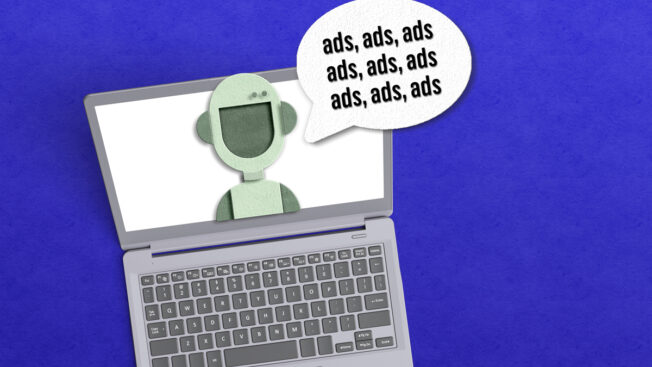AI Tools Have Publishers Fretting Over ‘Fair Use’ and Revenue Loss
The already fraught relationship between tech giants and news publishers is getting more complex, thanks to generative artificial intelligence, which is busy upending the media and marketing industries.
How AI technology, such as OpenAI’s ChatGPT, will alter search has publishers braced for the possibility that they will lose out on traffic and revenue. Urgency is mounting, so much so that publishing executives have recently looked at how their content has been used to train AI tools, according to publisher trade body News Media Alliance and the Wall Street Journal’s report. Members of the trade body include 2,000 publishers, such as The New York Times, The Washington Post and The Wall Street Journal.
Particularly vexing publishers is the extent to which AI tools link back or cite where the information has originated from—often the result of costly journalism—and a legal provision called “fair use” that allows copyright content to be used without permission.
“We don’t even have any attribution or links that come back to the original content for us to monetize,” said Danielle Coffey, executive vice president and general counsel of the News Media Alliance.
As a result, publishers are actively exploring revenue options to recoup their investment, along with finding legal pathways and technology measures to protect themselves from the impacts brought on by AI tools, said Coffey, who did not share specifics.
While publishers like BuzzFeed and CNET have tried to embrace AI technology, with various degrees of success, there’s been some industry handwringing as to how this tech will impact search, especially for media companies reliant on intent-based media revenue.
The emergence of generative AI leading to a drain in website traffic further exacerbates publishers’ revenue growth, said Coffey.
Linking back to publishers
Tech platforms such as Microsoft and Google have recently introduced their versions of AI tools, in some cases incorporating them into search. Microsoft has introduced AI into Bing search, while, this week, Google announced the release of Bard, its answer to ChatGPT, which has encountered early hiccups.
Although Microsoft’s version of AI-enhanced search includes links citing publishers when queried by users, in its early testing Google’s Bard often served answers without any links or attribution.
Regardless, “[people] are less likely to click the link because the entirety is included in an AI result,” said Coffey.
Marketers have also been skeptical of links as a vehicle for ads in chat-based search engines, with the prospect of people clicking on relevant links generating tepid responses.
‘Fair use’ is still to be determined
At the center of the tech platform and publisher tussle is the legal provision called “fair use” that lets copyright content be used without permission, an area that tech companies have previously argued over.
There’s ongoing debate as to whether AI companies can legally scrape publishers’ content to train their models. According to Coffey, the court is yet to determine if this practice falls under fair use.
OpenAI’s CEO Sam Altman told The Wall Street Journal that the company has “done a lot with fair use,” when it comes to ChatGPT and is willing to pay for high-quality data, such as science, that is used to feed the AI.
Publishers have similar longstanding concerns over fair use with Google Search’s knowledge panels, which give users answers to queries without attributing relevant media properties.
Any compensation publishers seek will be hard won. Legislation letting U.S. publishers negotiate compensation is being reintroduced after being circulated in the last Congress session, this time updated to cover commercial arrangements for AI tools.
Meanwhile, Google has previously struck deals to pay publishers like News Corp for content used in Google News Showcase, a product whose release in the U.S. has stalled reportedly due to unfavorable terms for publishers.
But, companies have already got muscular with AI-based copyright infringes. In February, Getty Images sued Stability AI, a Delaware-based AI art company, alleging copyright infringements. The litigation is pending.
https://www.adweek.com/programmatic/ai-tools-have-publishers-fretting-over-fair-use-and-revenue-loss/

